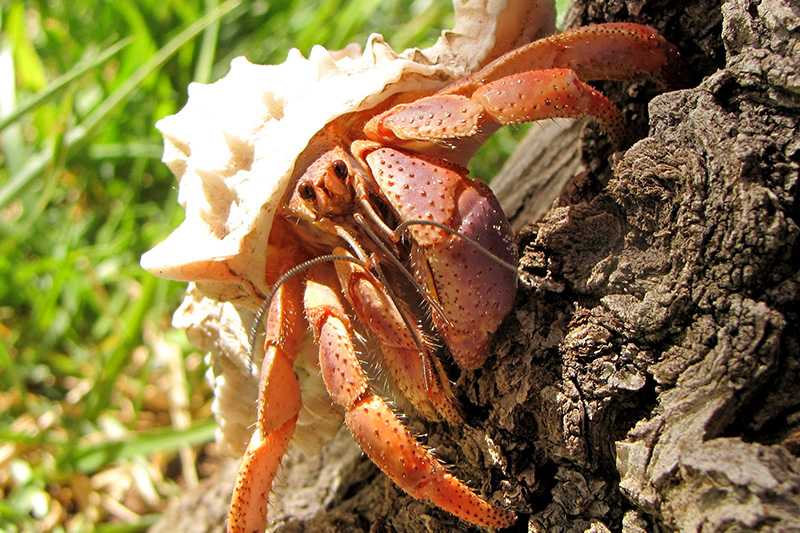When hermit crabs are mentioned, what’s the first thing that comes into your mind? Do you think of sandy white beaches? Coastlines? Fresh water?
Well, those are true until you meet the Caribbean hermit crab which are mostly found in the forests. Yes, you read that right.
Caribbean soldier crabs are one of the only few species of hermit crabs that you can find that was able to adapt to spend long periods of time on land and on this case, the forests.
So, How Does This Happened?
According to an expert, since they already adapted living in terrestrial lands, they were able to venture far into the forest. And its actually unique for hermit crabs to reach forests land since they are commonly found near bodies of water.
While these hermit crabs love to spend time on land, they still journey to the sea every now and then.
Are they different from wild hermit crabs found near the sea?
Well, not really, just like other hermit crabs, they salvage shells as well and use it as a protection and shelter. And they do this by going to coastlines and look for the best shells available for them.
That said, an expert highly discourages people who visit beaches or coastlines to not take abandoned shells since hermit crabs are using these as shelters.
These hermit crabs rely solely the following types of shell: gastropod shells, mollusc shells, and snail shells. They need these shells not just for shelter but also for the extra protection of their soft outer bodies.
And if you happen to be in a forest where they are located, chances are, you may hear the screeching sounds they make within their shells. You can actually hear the noise they make if you listen really well.
Why are they doing it? They make these noises when they are trying to get away from elevated to eventually high temperatures and direct sunlight. If you didn’t know yet, hermit crabs are highly sensitive to excess illumination.
And just like other hermit crabs, they are omnivores as well, which means they feed on food of both plants and animals, but they are also known scavengers, which means they will feed on corpses (bodies of dead animals, be it big or small).
